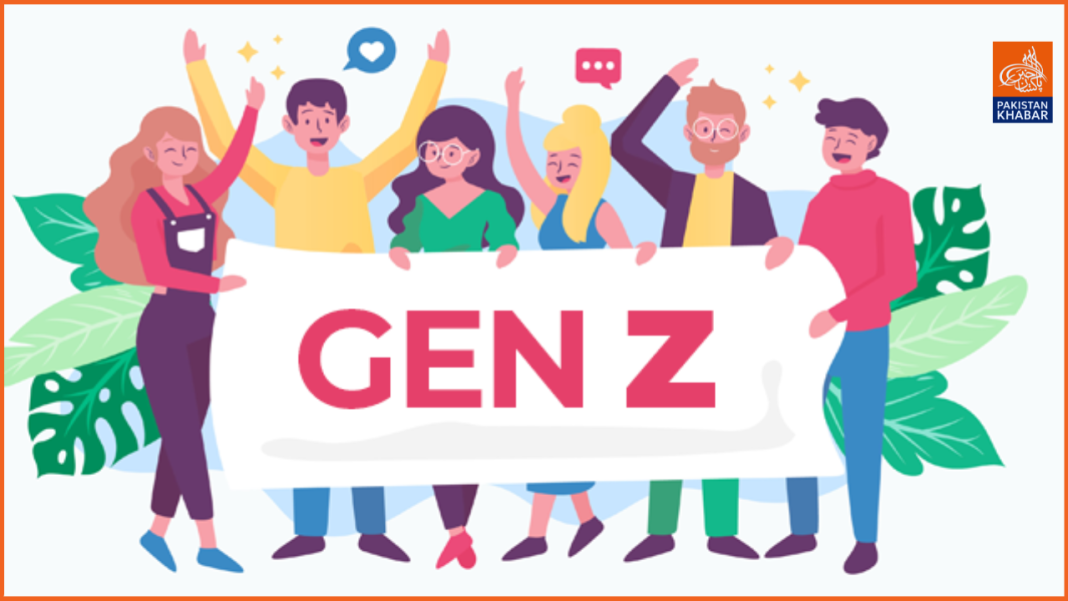Visualize a thrift store buzzing with young customers carrying second-hand jeans, vintage handbags, and gently worn sweaters under their arms. Geared towards environmental awareness, these young people are driving a movement rather than merely following a fad. You have entered the realm of Generation Z, who are redefining consumption with sustainability as their central theme.
A Generation Rooted in Awareness
Generation Z, born between the mid-1990s and early 2010s, has grown up in a world of infinite connectivity. From Instagram to grassroots campaigns, they’ve been bombarded with images of melting glaciers, deforested lands, and oceans choking on plastic. These aren’t distant problems but immediate realities. Unlike previous generations, Generation Z consumer behavior stems from this firsthand exposure to global challenges.
Their personal involvement in issues such as climate change sets them apart. For this cohort, sustainability serves as a compass that guides their decisions. Generation Z trends showcase a proclivity for minimalism, eco-conscious living, and holding brands accountable. A young person shopping for upcycled sneakers or choosing oat milk over dairy isn’t just making a purchase; they’re casting a vote for the planet.
Interestingly, this shift towards mindful choices runs deep. For instance, a Deloitte survey revealed that nearly 50% of Gen Z believes businesses should prioritize tackling environmental issues. Their expectations for big corporations to align with sustainable ideals reflect how profoundly their awareness is shaping global consumer sustainability trends.
Gen Z Consumer Behavior vs. Other Generations
It’s not enough to simply call Gen Z conscious consumers. To appreciate their impact, we need to compare their habits with other generations.
Take millennial buying trends, for example. Millennials—fiercely driven by the desire for unique experiences—often prioritize travel, technology, and self-expression over sustainability. Buying habits of millennials contributed to the rise of fast fashion and tech-focused convenience, but they’re increasingly influenced by the growing environmental consciousness fostered by their younger peers.
Gen Z’s shopping habits, in contrast, demonstrate restraint, intentionality, and a willingness to invest more in sustainable options. For this group, thrift shopping is not only a financial necessity, but also a symbol of resource efficiency and creative self-expression. Fast fashion brands now find it difficult to attract this group, as Gen Z increasingly gravitates towards resale platforms such as Depop and Poshmark. Research on Generation Z consumer behavior confirms that they’re more likely to investigate a brand’s values and policies before making a purchase.
Compare this to Gen X consumer trends, which largely focus on practicality and affordability. While Gen X is conscious of the environment, they are less likely to drastically alter their purchasing routines. Meanwhile, millennials act as a bridge—slowly shifting their habits under the influence of both their younger counterparts and accessible sustainability options.
The Revolution in Shopping Habits
The way Gen Z shops transcends individualism. Platforms that emphasize eco-consciousness are flourishing, thanks to this generation. For example, clothing resale sites like ThredUp and retailers integrating second-hand sections increasingly cater to their needs. This movement feeds into broader corporate transformations seen in response to Generation Z research that proves sustainability equals relevance.
Even beyond fashion, sustainability inspires vast innovation. Options such as shampoo bars to reduce bottle waste or companies offering compostable phone cases are becoming daily staples for Gen Z shoppers. Additionally, online rental services for furniture and technology reflect their commitment to reducing unnecessary consumption while promoting shared resources.
An excellent case study in adapting to Gen Z consumer behavior comes from the fast-food industry. Chains like McDonald’s have introduced plant-based offerings like the McPlant burger, knowing full well that younger consumers demand options with a reduced environmental impact. Similarly, Starbucks has felt pressure to overhaul some of its practices, offering plant-based milk alternatives while pursuing reusable cup initiatives.
Meanwhile, large corporations such as Adidas are unveiling sneakers from recycled ocean plastics. Tech juggernauts like Apple are striving toward carbon neutrality in their supply chains. The power of consumer sustainability trends spearheaded by Gen Z is evident in all these shifts.
The Future of Consumerism
The changes driven by Gen Z show no signs of slowing down. From thrifting culture to solar energy advocacy, this generation has embedded sustainability into its DNA. They are holding themselves and brands accountable, signaling a seismic shift in how the economy will evolve in the coming decades.
The beauty of their movement lies in its duality. It’s powerful yet hopeful. They’ve turned away from doomscrolling to actively participate in change. From calling out greenwashing (false eco-friendly claims) to signing up for urban cleanup programs, their actions redefine what it means to be a global citizen.
Big brands are aware. Fail to adapt? Risk becoming a relic. Win their trust? Earn their loyalty. This is the reality laid bare by Generation Z trends. If implemented well, transparency and ethics will no longer be boardroom discussions—they’ll become corporate lifelines.
Bridging Generations for a Sustainable Future
Gen Z’s impact extends beyond retail choices, setting a precedent for other generations to follow. By redefining consumption as a tool for activism, these young changemakers are proving that conscious choices can reshape the status quo. They remind us that, collectively, individual actions create powerful outcomes.
Where do we go from here? Backed by Generation Z research and their impressive knack for digital influence, an even larger wave of global transformation looms. Their ability to connect, inform, and inspire ensures their lessons won’t stay siloed within their demographic. Millennials, Gen X, and beyond are all catching on to the promise of sustainability-led lifestyles.
Gen Z is embracing sustainability with determination and conviction, demonstrating to the world that it’s not just a luxury or a duty, but the sole path to progress. And this time, we’re all invited to join the movement.




